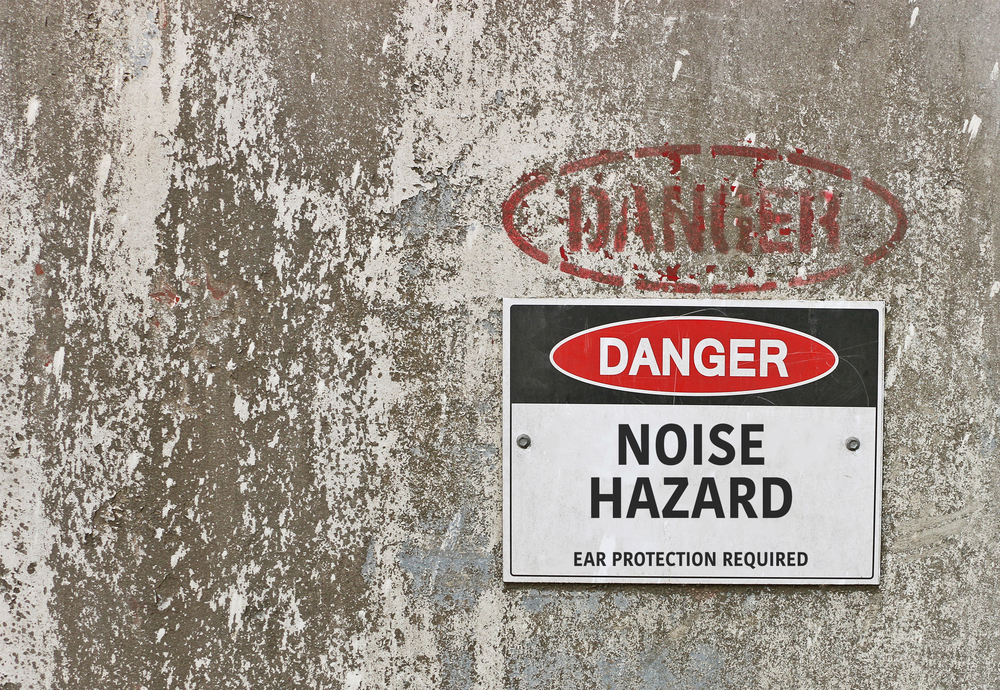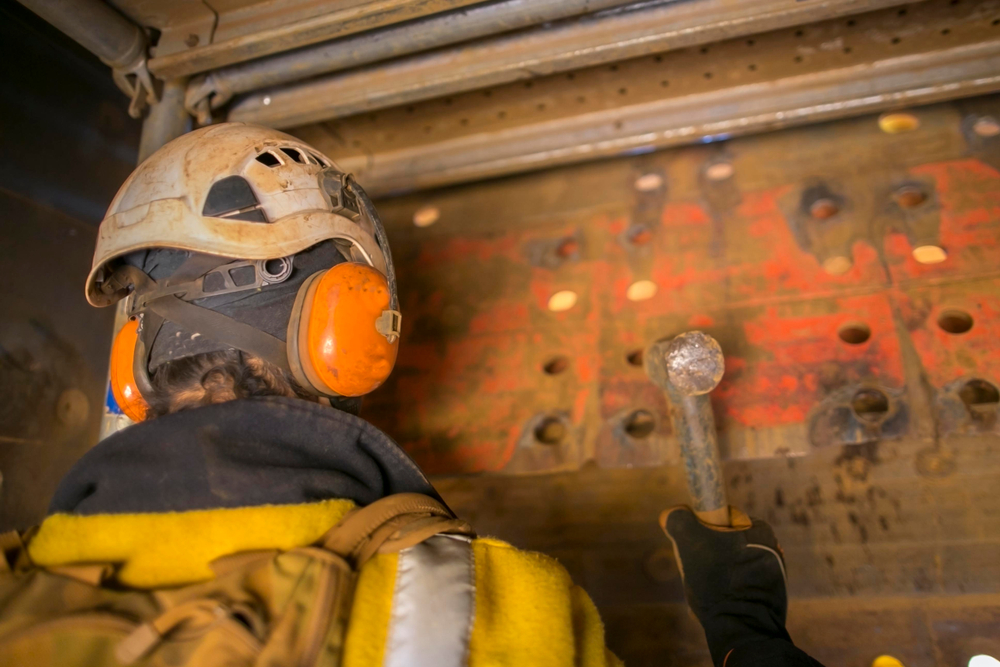Pennsylvania workers who suffer hearing loss due to workplace noise exposure or acoustic trauma may qualify for workers' compensation benefits. Occupational hearing loss affects thousands of workers across industries like manufacturing, construction, and transportation. Whether your hearing declined gradually from years of loud noise or suddenly from an acoustic incident, a skilled workers’ compensation lawyer can help you pursue the medical treatment, hearing aids, and wage replacement you may be entitled to.
Proving hearing loss came from work rather than aging or outside noise exposure can be difficult. Clear documentation helps connect your condition to job-related noise. Understanding how to document occupational hearing loss and navigate Pennsylvania's specific requirements may help protect your rights to benefits.
Key Takeaways
- Pennsylvania workers' compensation covers both gradual noise-induced hearing loss and sudden acoustic trauma.
- You must prove workplace noise exposure caused or substantially contributed to your hearing loss
- Audiometric testing provides crucial evidence for establishing work-related hearing damage- hearing loss of less than 10% is not compensable.
- Report hearing loss within 120 days of when you realize work caused or worsened your condition
- Pre-employment hearing tests may help establish baseline function for comparison
Types of Work-Related Hearing Loss

Occupational hearing loss typically develops through two distinct mechanisms, both potentially covered by workers' compensation. Understanding these categories helps you recognize compensable conditions and gather appropriate evidence.
Noise-induced hearing loss develops gradually through prolonged exposure to harmful sound levels. OSHA regulations define hazardous noise as 90 decibels over an 8-hour workday, though damage can occur at lower levels with extended exposure. This progressive damage affects the inner ear's delicate structures, causing permanent hearing reduction.
Acoustic trauma results from sudden, intense noise exposure like explosions, machinery malfunctions, or impact sounds. Unlike gradual hearing loss, acoustic trauma causes immediate damage. Workers may experience instant hearing reduction, ear pain, and tinnitus (ringing in the ears).
Many jobs involve exposure to harmful noise levels, whether over time or from a single loud event. Identifying common workplace sources of damaging sound can help connect your hearing loss to job conditions. Examples include:
- Prolonged machinery operation without adequate protection
- Exposure to industrial equipment like presses, grinders, or pneumatic tools
- Construction site noise from jackhammers, saws, and heavy equipment
- Sudden explosions or high-pressure releases
- Aviation ground crew exposure to jet engines
Both types of hearing loss may qualify for workers' compensation when you properly document them. Since back problems, falls, and repetitive injuries are also among the most common types of workplace injuries, hearing damage should be taken just as seriously when seeking benefits.
Proving Your Hearing Loss Is Work-Related
Establishing the occupational nature of hearing loss requires specific medical and workplace evidence. Unlike visible injuries, hearing damage needs objective audiology testing to demonstrate both its existence and work connection.
Audiometric testing forms the cornerstone of hearing loss documentation. These tests measure your hearing sensitivity across different frequencies, creating objective evidence of damage. Comparing current audiograms to pre-employment baseline tests, if available, provides powerful proof of work-related deterioration.
Medical professionals should evaluate your work history alongside test results. Occupational medicine specialists or audiologists can provide opinions linking specific workplace exposures to your hearing loss pattern. Key evidence for proving work-relatedness includes:
- Serial audiograms showing progressive hearing loss during employment
- Documentation of workplace noise levels through employer monitoring
- Medical opinions connecting your hearing loss pattern to occupational exposure
- Records of inadequate or absent hearing protection
- Witness statements about workplace noise conditions
The National Institute for Occupational Safety and Health (NIOSH) provides guidelines on occupational noise exposure that support work-relatedness claims. Reference these standards when documenting exposure levels exceed safe limits.
In some cases, workers also explore alternative treatments such as medical marijuana when dealing with chronic pain or tinnitus related to hearing damage.
Industry-Specific Hearing Loss Risks
Certain industries pose heightened risks for occupational hearing loss. Understanding industry patterns helps establish the work-related nature of your condition and identifies necessary preventive measures.
Manufacturing workers face constant exposure to machinery noise. Stamping presses, grinding equipment, and assembly line operations generate sustained high-decibel environments. Even with hearing protection, prolonged exposure may cause cumulative damage over years of employment.
Construction workers encounter variable but intense noise exposures. Jackhammers, circular saws, and heavy equipment create sound levels exceeding 100 decibels. The intermittent nature of construction noise can be particularly damaging, as workers may remove protection during quieter periods.
Transportation workers, including truck drivers and aviation ground crews, experience unique exposure patterns. Diesel engines produce low-frequency noise that penetrates standard hearing protection. Airport workers face extreme jet engine noise requiring specialized protective equipment.
Reporting Requirements for Hearing Loss

Pennsylvania's reporting requirements for occupational hearing loss differ from sudden injury claims due to the progressive nature of most hearing damage. Understanding these timelines protects your rights while building a strong claim.
Report hearing loss within 120 days of when you knew or should have known that workplace noise caused your condition. Understanding how to file a workers’ comp claim ensures you don’t miss crucial reporting deadlines.
This awareness might come from audiometric testing revealing work-related patterns, a doctor's diagnosis linking hearing loss to work, or recognition that hearing problems interfere with job performance.
For gradual hearing loss, pinpointing when to report can be challenging. Many workers first notice difficulty hearing conversations in noisy environments or need to increase television volume. When these symptoms prompt medical evaluation that reveals noise-induced patterns, the reporting clock starts.
Document your report carefully, including:
- The date you first noticed hearing difficulties
- Workplace noise sources and exposure duration
- Hearing protection provided and used
- Medical consultations and test results
- Impact on work and daily activities
Seek audiometric testing promptly when you suspect work-related hearing loss. Early documentation establishes baseline measurements for tracking progression and strengthens the work-relatedness connection.
What Makes Hearing Loss Claims Different from Other Work Injuries?
Hearing loss claims present unique challenges that require careful navigation. Several factors distinguish these claims from other workplace injuries.
Bilateral (both ears) versus unilateral (one ear) hearing loss affects benefit calculations. Pennsylvania law outlines hearing loss compensation based on specific levels of impairment. Understanding these calculations helps set realistic expectations.
FAQ for Workers' Compensation Hearing Loss
How much hearing loss qualifies for workers' compensation?
Pennsylvania doesn't require total deafness for compensation. But hearing loss must be at least 10% to qualify for benefits. Benefits depend on the percentage of binaural hearing impairment determined through audiometric testing.
Can I get workers' comp if I didn't always wear hearing protection?
Failure to use provided hearing protection doesn't automatically disqualify you. Document whether protection was consistently available, properly fitted, and adequate for noise levels.
What if my employer says my hearing loss is from aging?
Age-related hearing loss typically affects high frequencies equally in both ears. But just like cases involving workers’ comp and preexisting conditions, Pennsylvania law protects employees when job duties materially worsen their health. Noise-induced patterns show characteristic "notches" at specific frequencies. Audiologists can distinguish between patterns, and work acceleration of age-related changes may still qualify.
Do I need a lawyer for a hearing loss claim?
While not legally required, hearing loss claims often face challenges with proving work-relatedness. Professional guidance helps gather proper medical evidence, navigate testing requirements, and counter arguments about non-work causes.
How long can I wait to file a hearing loss claim?
Report within 120 days of discovering work caused your hearing loss. However, Pennsylvania allows claims within three years of the last workplace exposure. Earlier filing provides better evidence and protection.
Protecting Your Hearing and Your Rights

Occupational hearing loss develops silently, often unnoticed until significant damage occurs. Understanding your rights under Pennsylvania workers' compensation law helps you access necessary treatment and benefits when workplace noise damages your hearing.
Take hearing changes seriously and seek evaluation promptly. Early detection and documentation strengthen claims while potentially preventing further damage. Workers with strong documentation and timely reporting are more likely to have favorable outcomes under Pennsylvania workers' compensation law. Whether you’re dealing with hearing loss or workers’ compensation for back injuries, early documentation is key to protecting your rights.
If you're experiencing work-related hearing loss and need guidance navigating Pennsylvania's workers' compensation system, contact Kaufman Workers' Compensation Law at (267) 626-2973. From our offices in Abington and Philadelphia, we serve injured workers throughout Montgomery County and Southeastern Pennsylvania.
You don't need to wait for complete hearing loss or a denial to seek help. With our unique standby counsel service, you can have Jenifer Kaufman in your back pocket, ready to assist if complications arise, at no cost unless a claim petition becomes necessary. A claim petition is Pennsylvania's formal process for resolving workers’ compensation disputes.
Jenifer Kaufman is a certified workers' compensation specialist in Pennsylvania, earning this credential in 2013, the very first year it became available, and renewing it in 2018. We help workers with occupational hearing loss understand their rights and pursue benefits available under Pennsylvania law.